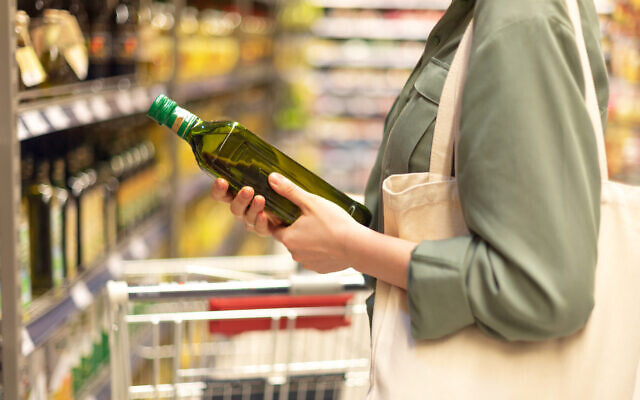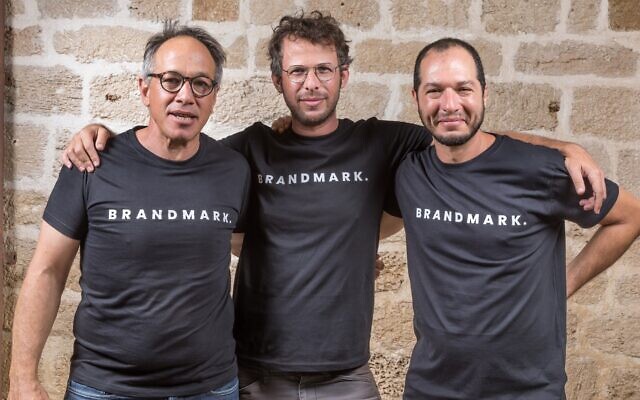Israeli-Japanese firm Brandmark is using blockchain technology to help food manufacturers showcase the source of their products and allow consumers to understand where the goods they buy came from and what processes they have undergone.
Blockchain technology is revolutionary in the high level of security it provides: it is a distributed ledger that enables the sharing of control over information between multiple organizations. Blockchain replicates the database identically across all participating stations, and thus verifies one truth across the entire network. If one node on the network reports something else, the other nodes will not accept this difference, flagging a discrepancy. Bitcoin — often associated with blockchain — is one implementation of blockchain in the field of currency, but there are many uses for the technology.
Brandmark, which is a joint venture between Israel’s Blackbird Ventures and Japan’s blockchain technology firm EMURGO Ltd., is now using this technology to increase transparency for consumers — revealing to them via the simple scanning of a barcode the journey products have made from the field or manufacturer to the store shelf.
The platform helps customers “tell their story in a different manner,” said Michael Bar-Zeev, Brandmark’s VP of business development. Instead of just stating how the product was made and its origins, producers can provide consumers with “factual proof” about how the product reached the point of sale — from the farm to the processing plant and the distributor.
An illustration of Brandmark’s coffee platform in action (Courtesy)
All these details will be on the product’s barcode, which can be scanned by smartphone.
As supply chains nowadays are global, transparency and traceability — the ability to trace the history, distribution and location of products and services — is key. Environmental and social concerns have put the spotlight on global conglomerates regarding how their products are made: the levels of emissions in the manufacturing process, sustainability efforts, the possible use of child labor. Producers can back up claims for their products by showing ingredient sourcing, certification labeling data and quality assurance procedures,
“We can help them show the world the good work they did: their level of social responsibility, fair trade, environmental concern, waste and emissions,” said Bar-Zeev. “We can give them the full picture.”
Food makers, cannabis producers, drug and cosmetics companies are all potential targets for the platform, Bar-Zeev said. In the future, textile manufacturers, car makers and tobacco growers could be added to the customer list as the company expands its focus.
“Where demand is high and urgency is high, that is where we will be,” Bar-Zeev said. More and more industries are “understanding the great need” to tell the story of their product’s origin and using it as a marketing tool.

An illustrative image of a person buying olive oil in a grocery store, supermarket (jchizhe; iStock by Getty Images)
Indonesian coffee producers, olive oil producers and Israeli cosmetics firm Ahava are among Brandmark’s customers, as is McDonald’s, to trace the vegetables used in its stores. The company is in talks with Nestlé S.A., Burger King, Angel Bakeries and Cannabis Hydroshop, it said.
How does it work? Farmers get equipped with computers and they input information about the crop, what conditions it was grown in, and when it was harvested. At each stage of the product’s journey, from field to distributor to store shelf, each partner in the process provides input about the product.
The coffee traceability platform, for example, connects all the data in the supply chain, starting at the coffee bean farm and covering the different processes the coffee beans undergo, through the roasting process, until they arrive at the customer’s home. Coffee producers will be able to provide this information to the consumer, who simply scans the barcode or clicks on a link sent by text message. The app will provide details including the item’s quality, origins, conditions, freshness, and expiration date.
“Anyone can always cheat, of course,” said Bar-Zeev. But because there are so many players in the chain — each independent of the another and each reporting their own bit of information — the chances of someone being able to cheat are lower, he said. The firm also deploys or works with partners to deploy hardware such as cameras, sensors, thermometers, DNA tests and satellite imagery to gather proof of the processes along the line.

Brandmark’s co-founders Michael Bar-Zeev, right to left, Gilad Waksman and Daniel Rosenfeld (David Moskowitz)
Bar-Zeev, Gilad Waksman and real estate entrepreneur Daniel Rosenfeld are the co-founders of Blackbird Ventures, which set up Brandmark as a joint venture with Emurgo in August.
Brandmark currently provides the platform to a number of Indonesian coffee producers, and is in talks with large food companies, including Nestlé S.A., Burger King, Angel Bakeries and Cannabis Hydroshop, the company said.
Tech giants such as IBM and other firms also use blockchain to help track the origins of products. The IBM Food Trust platform, for example, offers “end-to-end product traceability,” where authorized users can “find and trace the path of their organization’s food product instances along the supply chain.”
The advantage of Brandmark, said Bar-Zeev, is its strong blockchain roots and its sole focus on the platform. “We come from blockchain,” he said. “We have the advantage that we come from the field and are not just entering the field.”
Either way, he said, competition is good. “There is so much work, there is no single body that can deal with this amount of work.”
EMURGO has offices and manages projects in Singapore, Japan, the US, India, and Indonesia.
